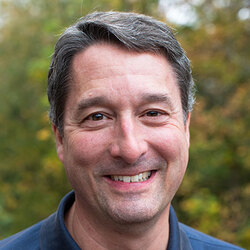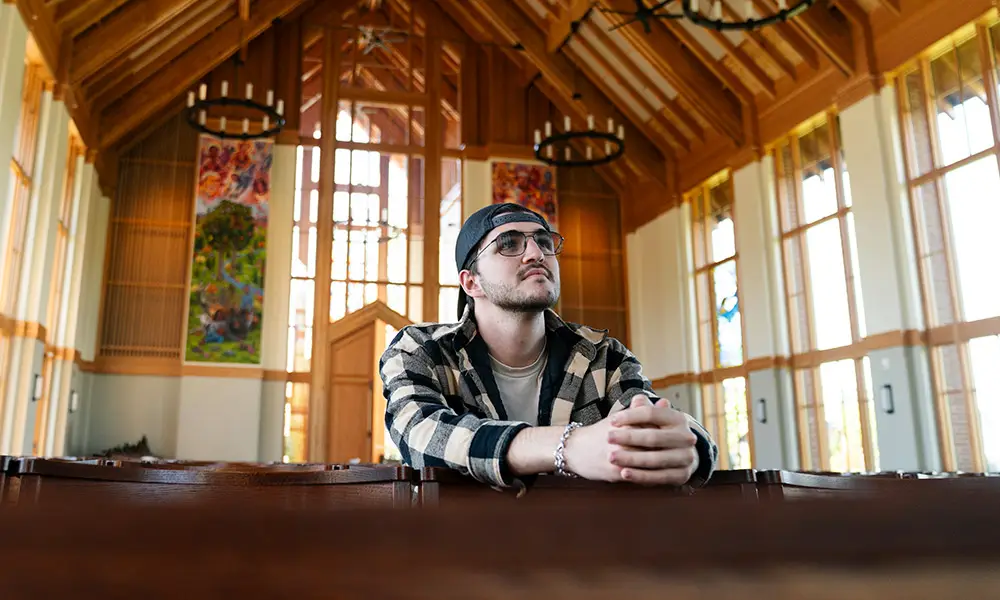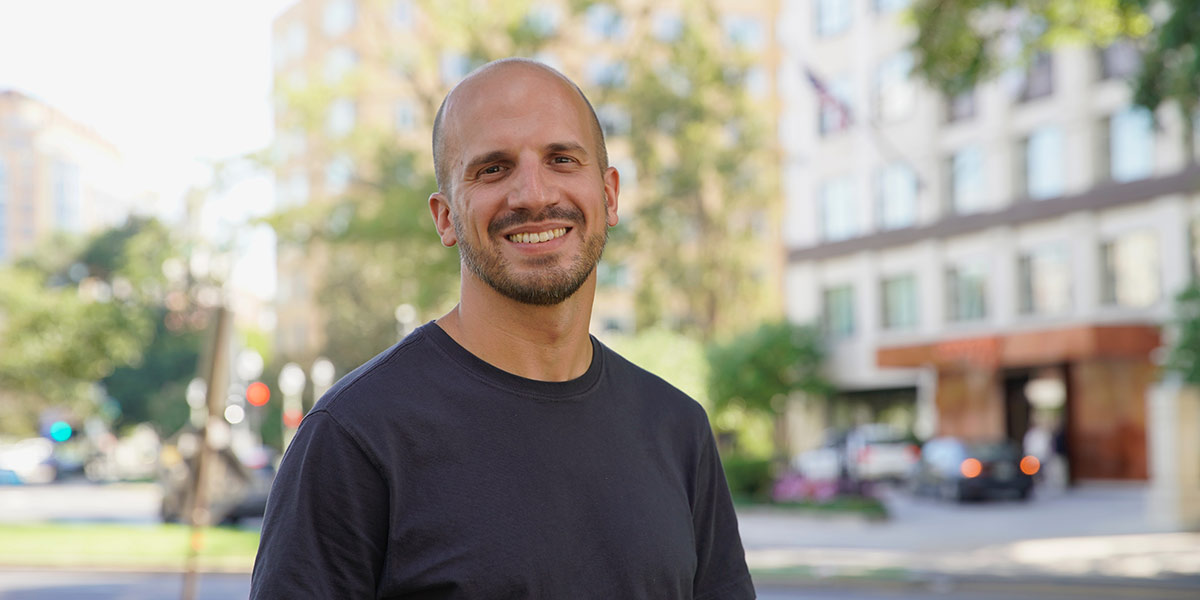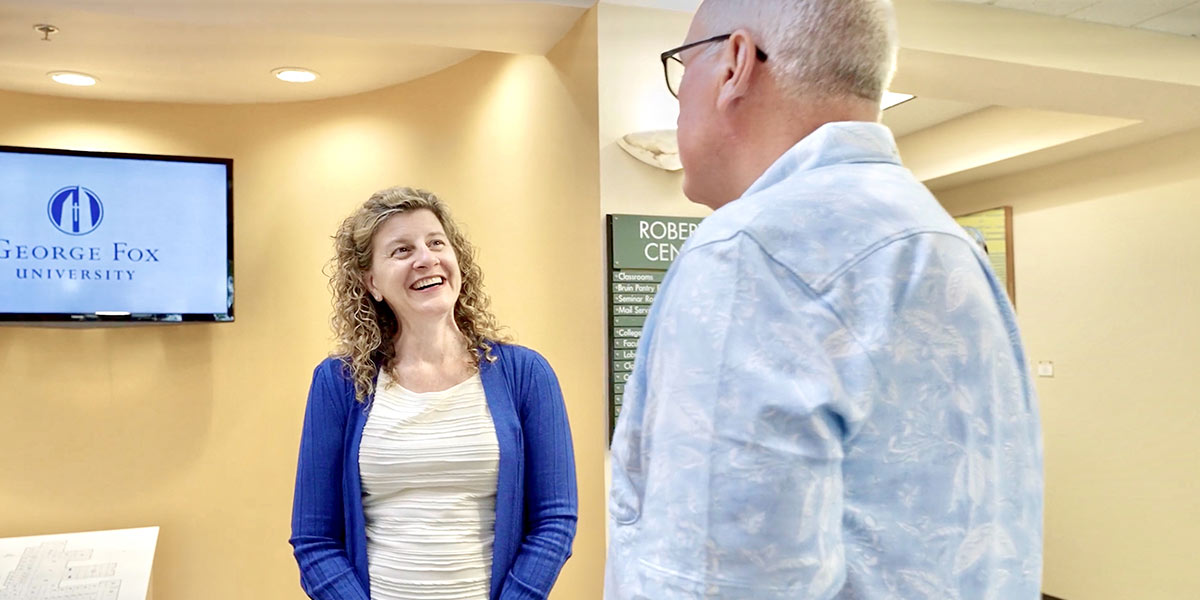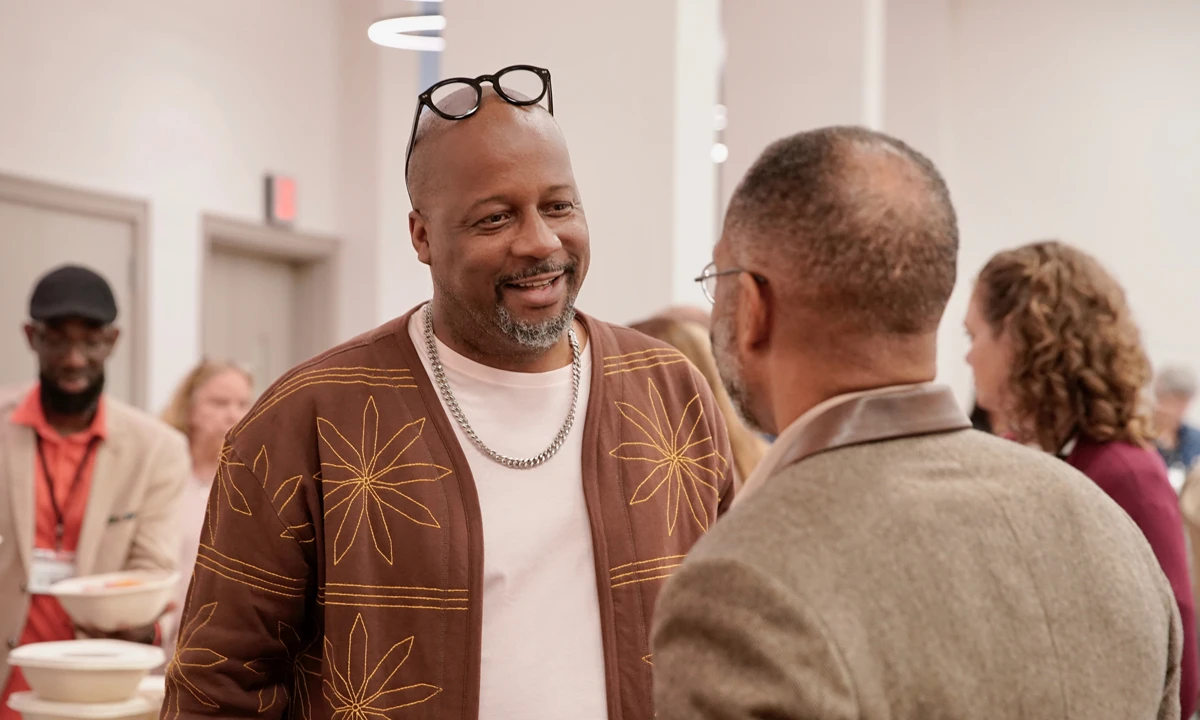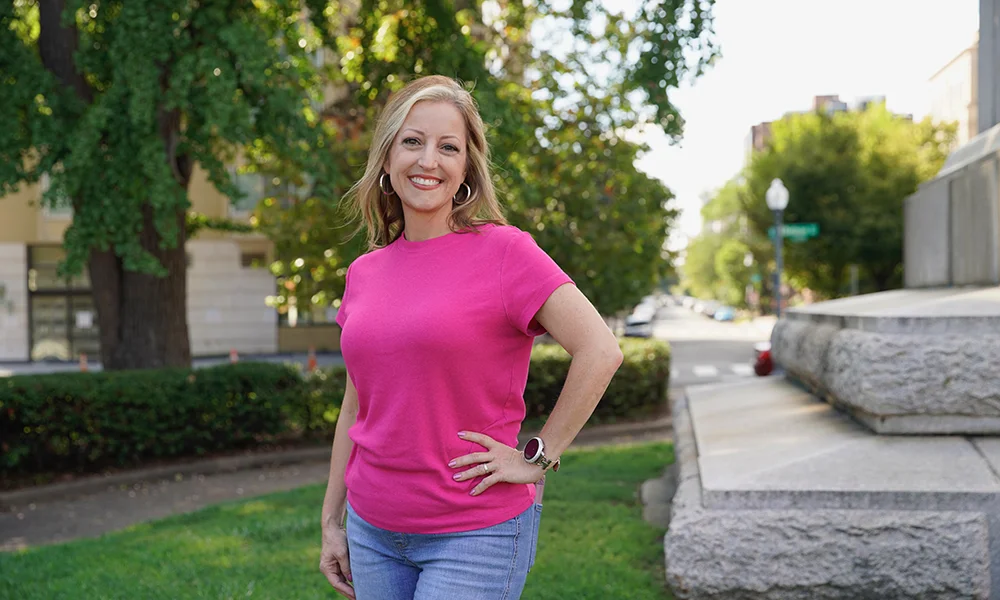
Bridging the Gaps
by Sean Patterson
As director of development for a nationally renowned prison ministry, seminary student Jennifer Eckert offers a listening ear and a compassionate heart to promote reconciliation across racial and ideological lines
In a world fractured by political and social tension, Jennifer Eckert is determined to do her part to bridge gaps not only between those of different races and cultures, but those who share different ideologies.
It’s not an easy task to take on, but as Eckert sees it, it’s an essential one if we’re to forge a future where our children can speak their minds without fear of being marginalized – or worse – persecuted.
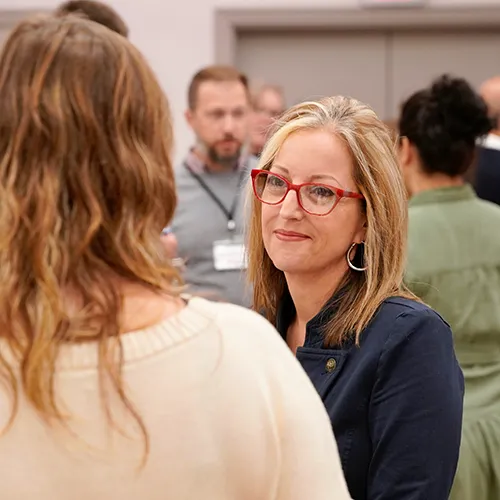
‘Diplomacy: A Lost Art’
“Diplomacy is a lost art, and I don’t want to move forward in a world where my 23- and 24-year-old children can’t voice their opinions because they’re fearful of retribution,” says Eckert, a student in Portland Seminary’s Doctor of Leadership in Global Perspectives program. “So my hope is to be that bridge maker – to be more courageous and have those hard conversations in order to intentionally create spaces for reconciliation to happen.”
Eckert is putting those bridge-building skills to work as director of development for a nationally renowned prison ministry. As such, she travels throughout eight Southern states visiting donors and prisons in a fundraising role, advocating for current and formerly incarcerated people and their families through programming, the Angel Tree gift-giving initiative, and corrections culture advocacy work.
It’s work that resonates with Eckert, raised by a single mother in Oklahoma after the death of her father when she was 12. Her family’s struggles with depression and suicides sparked in her a desire to develop resilience – the notion of picking yourself up and continuing to move forward amidst adversity – and do her part to help instill that character trait in others.
At first, that desire to come alongside the disadvantaged landed her a job as director of fundraising for a state food bank, while she concurrently volunteered for a women’s prison ministry. It was during this time she came to the realization that many of the children she was assisting through the food bank’s Food for Kids programs were the sons and daughters of the women she was visiting in prison.
“You could say it’s a calling,” Eckert says of her work. “Previously I spent 13 years in public health, so serving the community – serving marginalized communities, in particular those in prison and their families – is what is close to my heart.”
Finding Her Community
In seeking to further build on those reconciliation skills, Eckert discovered Portland Seminary from a local pastor. She had been out of school for 12 years, so she was understandably unsure about returning to the world of academia, but the prospect of engaging with others as they pursued Christ intrigued her.
Beyond the prestige of earning a degree, the impetus behind enrolling came from a personal place.
“I came to the seminary because I really was looking for an academic program to learn ‘academic Jesus’,” she says. “That's the term that I use. I was reading Bonhoeffer, and there was nobody around in my community reading Bonhoeffer. And so I had nobody to dialogue with what I was reading, and I really was looking for just an academic group. When I found the [Doctor of Leadership] program I was really excited by it, but I was nervous.
“Being out of school for so long, I was unsure if I needed to do this – if I really wanted to. Honestly, I really don’t care as much about the title. This is truly about my journey of learning more about Jesus and the very pragmatic application of his teachings in our culture today.”
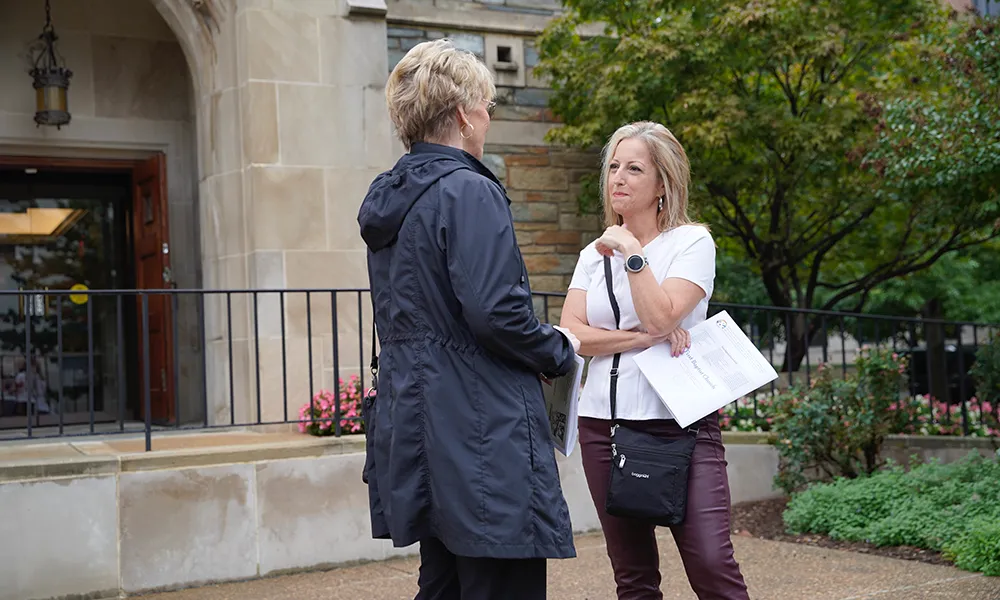
Putting Faith into Action
Living in Mustang, Oklahoma, a suburb of Oklahoma City, Eckert is getting the opportunity to apply her learning not only to her work in prisons, but to the community around her. Specifically, she’s applying biblical principles to the ongoing reconciliation work birthed by recent political tension.
“I come from a state and a community that’s ‘Deep Red,’ and I’m not ‘Deep Red,’” she says. “The program has been affirming, because it can be very isolating when you are operating in a belief system that’s different from the majority around you. I understand that I needed to be bridging out not only to different races, which isn’t a problem for me, but to different ideologies as well. And so that’s really what this has helped me to feel more confident and comfortable doing – bridging across to those who have different views than I do.”
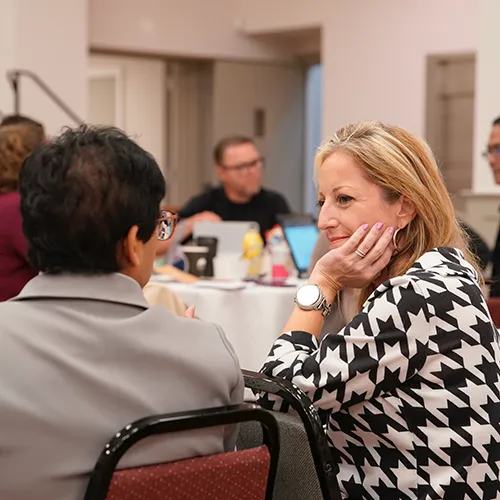
The Focus: ‘Loving People’
Ultimately, the job at hand requires Eckert to engage in difficult conversations – about faith, beliefs and ideologies – as she encounters the brokenness and vulnerabilities of those she interacts with. It’s a task she feels better equipped for thanks to the Doctor of Leadership program and her cohort of international peers.
“We dialogue, and it’s a safe space,” she says of her cohort. “This has been a very safe space to have those hard conversations. So I think it allows the space to test out your voice, to test out the discourse. I mean, we’ve forgotten how to have discourse to the point that, after I finish the program, one of the things I want to do in addition to continuing my career in prison ministry is to have small-group discussions at church where we reteach how to have difficult conversations.”
Eckert recently attended the seminary’s Advance gathering in Washington, D.C., where she had the opportunity to interact with peers and broaden her perspective on issues related to her faith and how it plays out in everyday life.
“The impact of [this Advance] is it refocused my attention, perhaps on the broader issue of loving people instead of being so buried in the details.”
